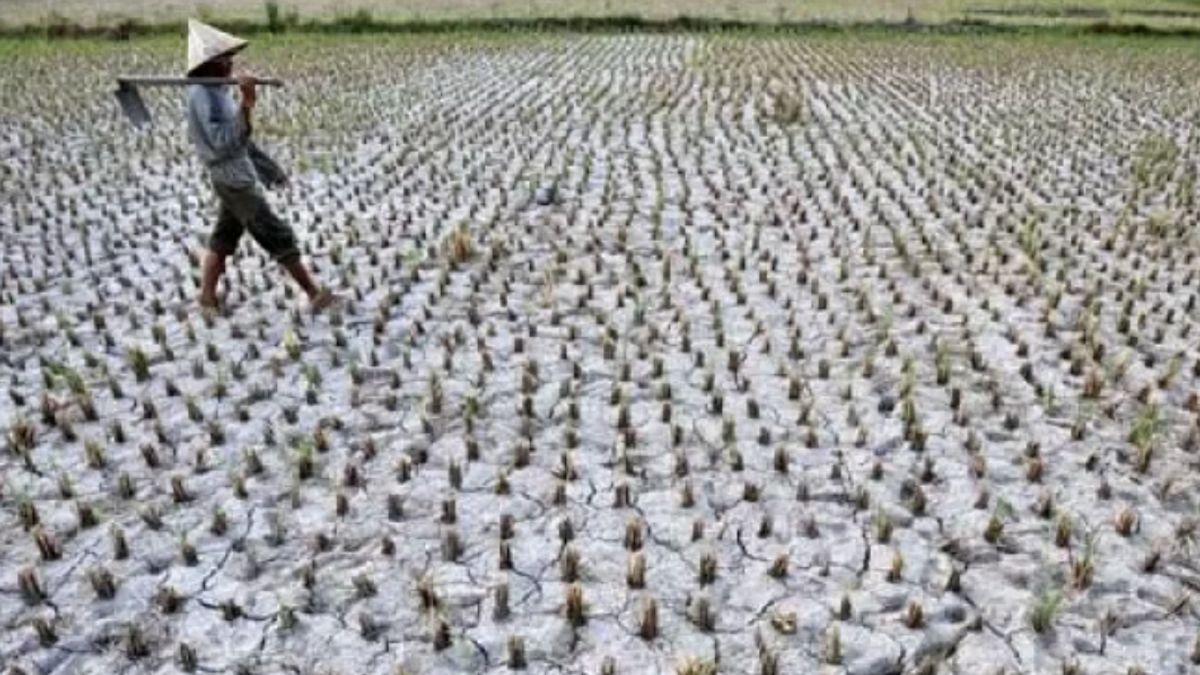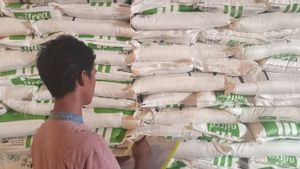JAKARTA - The National Research and Innovation Agency (BRIN) said that the El Nino disaster that is currently engulfing Indonesia will increase the threat of drought that could threaten the rice production center area.
"The current El-Nino phenomenon has occurred, and will increase the threat of a very high drought in the June-October period in the rice production center area," said BRIN Development Policy Deputy Mego Pinandito in a discussion related to El Nino reported by ANTARA, Tuesday, June 20.
Mego said water shortages could also result in a decrease in the planting area of other commodities such as corn and soybeans.
He said El Nino had already happened and would last until the cycle was over, which on average was decreasing. According to him, the average cycle of El Nino stagnated from the original eight years in the 19th century, to four years when entering the 20th century, with a longer duration.
"Rainfall and irrigation water availability decrease, with an implication of reducing production by 3.06 percent every incident," said Mego.
In addition, he said El Nino could cause a decrease in rainfall in certain areas in Indonesia, thereby increasing the risk of drought, as well as affecting the supply of clean water for the needs of the community, agriculture, and industry.
Then, he continued, El Nino could disrupt clean water supplies and agricultural irrigation services and could potentially have a negative impact on electrical energy due to a decrease in reservoir water volume.
"Also it has the potential to cause a reduction in national food stocks due to crop failure or decreased productivity," he said.
Baca juga:
Therefore, Mego suggested that the government prepare seeds of plant varieties that are drought tolerant and short-lived.
In addition, the government also needs to encourage the acceleration of planting in areas with sufficient water and encourage planting of crops and short-lived nuts (70-80 days).
"Adding more massive water reservoir capacity such as building dams, reservoirs, as well as improving infrastructure in a massive amount to be more efficient and effective in the long term," he said.
The English, Chinese, Japanese, Arabic, and French versions are automatically generated by the AI. So there may still be inaccuracies in translating, please always see Indonesian as our main language. (system supported by DigitalSiber.id)













